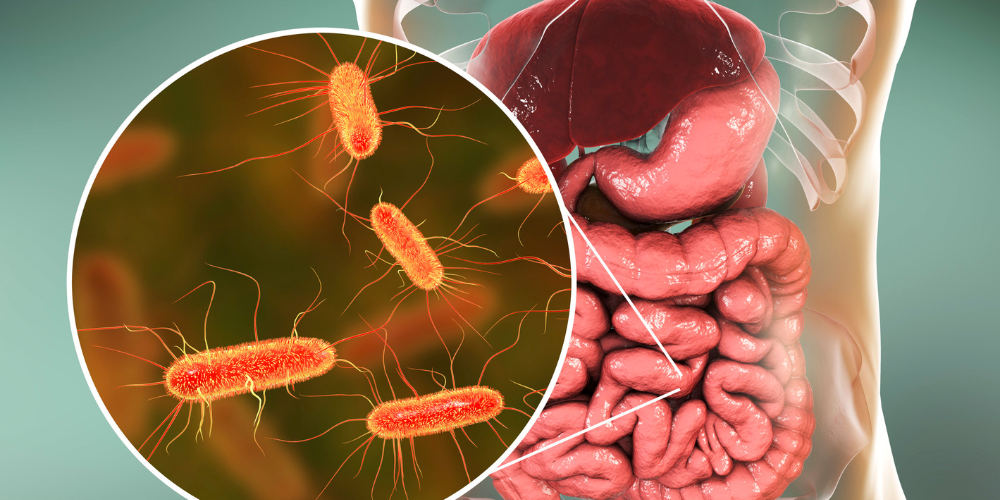The discourse surrounding gut health has garnered considerable attention, driving a surge in sales of probiotics, fermented foods, and gut-related supplements. The global probiotic market, valued at over $61 billion in 2021, is anticipated to reach $91 billion by 2026, fuelled by heightened consumer awareness and the popularity of probiotic-fortified foods. However, is supplementing with probiotics truly essential for cultivating robust gut health? The succinct answer is “no.” While probiotic supplements serve a crucial role in addressing specific conditions, prioritising dietary interventions yields the most favourable outcomes for individuals seeking to optimise gut health.
Let us delve into the array of foods that merit inclusion in our diets.
Fermented Foods:
Numerous human studies have evidenced that regular consumption of fermented foods can induce shifts in microbiome composition and enhance microbiome diversity. In a smaller randomised controlled trial, a diet rich in fermented foods was found to reduce inflammatory markers in healthy adults.
“Regular” consumption entails integrating fermented foods into one’s diet from 1-2 times weekly to daily consumption. There exists a plethora of fermented delicacies to choose from:
- Fermented dairy products such as kefir, yogurt, buttermilk, and sour cream.
- Fermented soy products including natto, miso, tempeh, and soy sauce.
- Fermented vegetables like sauerkraut, kimchi, and assorted pickled vegetables.
- Fermented grains, exemplified by sourdough.
- Fermented beverages like kombucha (fermented tea) and kvass (fermented rye drink).
When selecting pickled vegetables, it is important to verify that they have not undergone pasteurisation or been preserved with vinegar during the preparation process. Live microorganisms cannot survive the pasteurisation process and struggle to thrive in the presence of vinegar.
Fermented foods are inherently high in histamine. Consequently, individuals with histamine sensitivity may experience exacerbation of symptoms when consuming fermented foods. Additionally, individuals with small intestinal bacterial overgrowth (SIBO) may find certain fermented foods challenging to digest, potentially exacerbating their symptoms. Prioritising resolution of histamine intolerance and SIBO under the guidance of a healthcare practitioner before integrating fermented foods into one’s regular diet is recommended.
Prebiotic-Rich Foods:
Another category of gut-friendly foods encompasses plants rich in prebiotic fibres. Prebiotic fibres, indigestible carbohydrates, traverse the digestive tract to the large intestine, where they undergo fermentation by the intestinal microbiota. This process fosters the proliferation of beneficial microbes, which ferment the prebiotics to produce health-promoting molecules such as short-chain fatty acids and vitamins. Prebiotics also enhance digestion and nutrient absorption while inhibiting the growth of pathogenic microbes.
Natural sources of prebiotics abound:
- Vegetables like artichokes, chicory root, garlic, dandelion greens, and onions.
- Nuts and seeds such as almonds, chia, and flax seeds.
- Whole grains like barley and oats.
Ground chicory root can be utilised as a hot beverage or even as a coffee substitute, owing to its mild resemblance to instant coffee. Incorporating garlic and onions into vegetable-based dishes and enriching morning oatmeal with chia, flax seeds, and almonds represent effortless strategies for increasing prebiotic intake.
Polyphenol-Rich Foods:
Another avenue for nurturing gut health entails consuming a wealth of polyphenol-rich foods. Polyphenols, which are plant compounds responsible for imparting flavour and colour, undergo modification by the gut microbiota in the large intestine. An intricate interplay exists between gut microbiota and polyphenols, whereby the gut microbes transform polyphenols into anti-inflammatory, anti-cancerous, and antioxidant compounds. Polyphenols bolster the growth of probiotic bacterial families while curtailing the proliferation of pathogenic bacteria.
Vegetables, fruits, and beverages stand out as primary sources of polyphenols. Well-researched polyphenols renowned for their capacity to modulate gut microbiota include:
- Quercetin, abundant in apples, cherries, citrus fruits, onions, parsley, sage, tea, and dark berries such as blueberries, blackberries, and bilberries.
- Epigallocatechin gallate, prevalent in green tea and matcha.
- Lignans, found in flaxseeds, whole grains, seeds, and legumes.
- Stilbenes, abundant in red grapes, red wine, tea berries, and peanuts.
- Tannins, ubiquitous in leaves, seeds, barks, roots, fruits, vegetables, legumes, cereals, shrubs, and over 40 herbs.
Interestingly, a richer and more diverse gut microbiota augments the anti-inflammatory, antioxidant, anti-cancerous, and neuroprotective benefits derived from dietary polyphenols.
In summary, the recommendation to embrace a diet teeming with diverse plant sources—including legumes, seeds, nuts, vegetables, fruits, whole grains, and herbs—enjoys robust scientific support. Moreover, regular consumption of fermented foods serves as a potent strategy for fostering gut microbiome diversity.
What’s the deal with fermented foods – do they genuinely aid gut health?
For centuries, humans have relied on fermentation to preserve and enhance the flavour of foods and beverages, ensuring their safety for consumption. Various food groups, including dairy, vegetables, roots, legumes, fruits, meat, and fish, undergo fermentation.
Fermented foods hold cultural significance worldwide, with some of the most renowned products originating from different regions:
- Kefir, fermented milk, hails from the Caucasus.
- China introduces kombucha, fermented tea.
- Japan offers natto and miso, made from fermented soybeans.
- Korea boasts kimchi, fermented vegetables.
- Sourdough bread originates from the Middle East and Europe.
- Indonesia provides tempeh, fermented soybeans.
Recently, fermented foods have gained popularity, driven by claims of their health benefits, particularly concerning gut health. But do these products genuinely deliver on their health promises?
Kefir is the most extensively researched fermented food, followed by sauerkraut, natto, and sourdough bread. While kombucha, miso, kimchi, and tempeh have been extensively studied in laboratory settings, there are no randomized controlled trials (RCTs) evaluating their impact on human gut health. However, this lack of clinical evidence doesn’t diminish the potential benefits of consuming these foods.
Health Benefits of Fermented Foods:
Probiotic Effects:
Fermentation retains enzymes, vitamins, minerals, and potentially probiotics in foods and beverages. While quantifying microbial content is challenging due to variations in type, production region, and age, most fermented products contain a significant number of microbial cells per gramme. These probiotics, though their presence in the gut may be transient, compete with harmful bacteria and produce beneficial immune-modulating by-products. For instance, kefir contains various beneficial bacteria and yeasts that can correct gut imbalances and confer health benefits such as aiding in H. pylori eradication and reducing inflammation markers in inflammatory bowel disease patients.
Production of Beneficial Compounds:
Fermentation introduces new compounds to foods, such as bioactive peptides and polyamines produced by lactic acid bacteria, which can have positive effects on cardiovascular, immune, and metabolic health. Nattokinase, an enzyme produced during natto fermentation, is used in treating cardiovascular diseases and high blood pressure.
Prebiotics and Vitamins:
Fermentation produces prebiotics that feed probiotics, and microbial flora used in fermentation can influence vitamin composition. For example, certain bacteria found in kefir contribute to the production of vitamins B12 and B6.
Reduction of Toxins and Anti-nutrients:
Fermentation can reduce the levels of toxins like phytic acid in soybeans and fermentable carbohydrates in sourdough, making these foods easier to digest for individuals with conditions like irritable bowel syndrome.
Are Fermented Foods Suitable for Everyone?
While fermented foods offer health benefits to many, they may not be suitable for everyone. Those sensitive to histamine or suffering from small intestinal bacterial overgrowth (SIBO) may find fermented foods exacerbating their symptoms.
With a plethora of fermented products available, including pickles, sourdough, yogurt, kefir, kimchi, and more, newcomers are advised to start slowly with milder flavours like yogurt, kefir, and sourdough before exploring stronger-tasting options like kimchi and natto.
While the evidence supports the health benefits of fermented foods, their effects extend beyond their original ingredients. Their potential probiotic effects, enhanced nutritional profiles, and the production of health-promoting metabolites make them a valuable addition to any diet aimed at optimizing gut health. However, individuals should be mindful of potential adverse reactions, as with any dietary component, particularly those sensitive to histamine or with SIBO.



